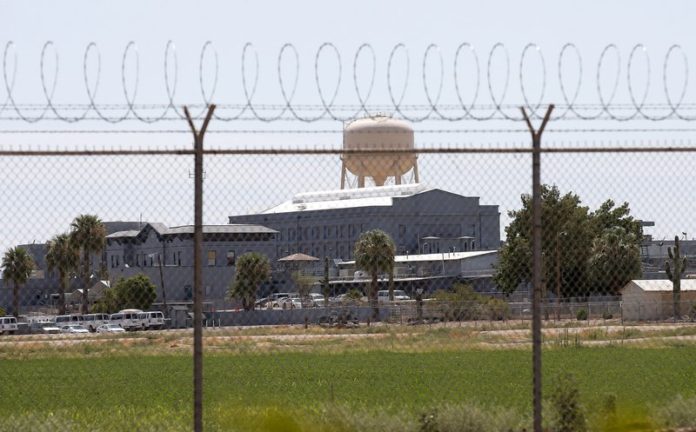
A federal judge presiding over a legal settlement on the quality of health care in Arizona’s prisons has imposed $1.1 million in contempt of court fines against the state for failing to follow through on its promises to improve inmate care, marking the second time the state has faced penalties for remaining non-compliant with many elements of the six-year-old deal.
The fine was imposed Wednesday by U.S. District Judge Roslyn Silver after corrections officials had been dogged by complaints that they were dragging their feet in making all the changes to which they had agreed.
Corrections officials did not immediately respond to a request for comment about the fine.
Over the last several years, the judges who have handled the case have expressed frustration over the state’s noncompliance, leading to a $1.4 million contempt fine in 2018 against the state and a civil contempt finding against then-Corrections Director Charles Ryan.
Silver then had threatened to impose more fines and raised the possibility of throwing out the settlement and bringing the case to trial. A court-appointed expert has concluded that understaffing, inadequate funding and privatization of health care services are significant barriers in improving health care for about 30,000 inmates in Arizona’s 10 state-run prisons.
On Wednesday, Silver found the state in civil contempt for not complying with 22 performance measures, such as ensuring newly prescribed medications be provided to inmates within two days at the Eyman prison and making medical providers tell inmates about the results of pathology reports and other diagnostic studies within five days of receiving such records at the Florence prison.
Though the state paid the $1.4 million fine issued in 2018, the company that at the time provided health care services within the prisons had reimbursed the state for that amount.
The settlement arose out of a lawsuit that said the state’s prisons didn’t meet the basic requirements for providing adequate medical and mental health care.
The lawsuit said some prisoners complained that their cancer went undetected or that they were told to pray to be cured after begging for treatment.
It also said the failure of the medical staff at one prison to diagnose an inmate’s metastasized cancer resulted in his liver enlarging so much that his stomach swelled to the size of a pregnant woman at full term. Another inmate who had a history of prostate cancer had to wait more than two years for a biopsy.
The state denied allegations that it was providing inadequate care, and the lawsuit was settled without the state acknowledging any wrongdoing.
Republished with the permission of the Associated Press.













